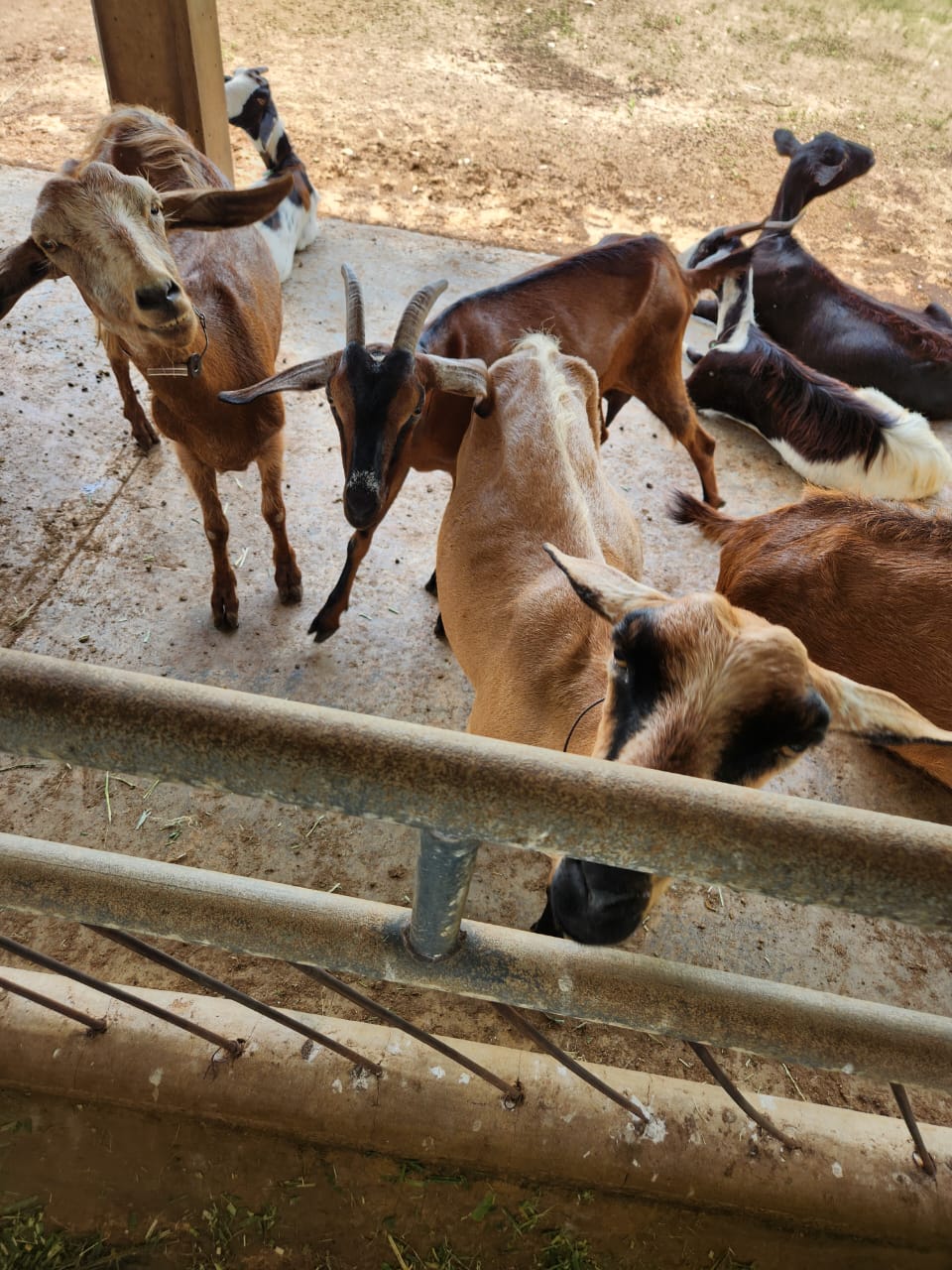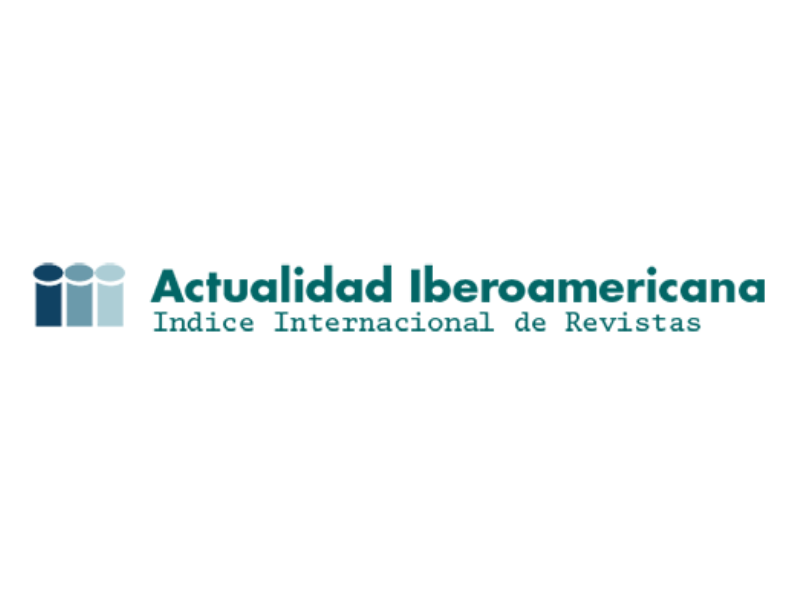Physicochemical properties of goat milk from small-scale production units
Propiedades fisicoquímicas de la leche de cabra en unidades productivas a pequeña escala


This work is licensed under a Creative Commons Attribution-NonCommercial-ShareAlike 4.0 International License.
Show authors biography
Objective. To evaluate the physicochemical composition and nutritional value of goat milk produced in three different small-scale production management systems in Merida, Yucatan in Mexico, to produce milk for human consumption for people with lactose intolerance problems. Materials and methods. Samples were collected every two weeks for four months, and their fat, protein, lactose, total solids, ash, calcium, and phosphorus contents were quantified. Density, pH, acidity, fatty acid profiles by gas chromatography, and the electrophoretic pattern of caseins were determined. Results. The average composition was 2.69% fat, 4.10% protein, 4.12% lactose, 12.96% total solids, 0.83% ash, 139 mg/100g calcium, and 105 mg/100g phosphorus. The density, acidity as lactic acid, and pH obtained were 1.032 g/cm3, 1.36 g/L, and 6.51, respectively. The milk provided MUFAs, such as oleic and gadoleic acids, and PUFAs, such as linoleic and arachidonic acid, involved in metabolic processes that reduce the risk of metabolic syndrome. The electrophoretic pattern of the caseins showed more abundant bands, with molecular weights of 20 to 36 kDa. Conclusions. The composition of the goat milk produced was superior, having nutritional advantages and potential health benefits compared to milk from other species. The lactose content, pH, and acidity of goat milk differed depending on the production units, and density, fat, protein, and ash were not influenced. The absence of αs1-casein would be advantageous for reducing allergies associated with milk consumption.
Article visits 290 | PDF visits
Downloads
- Colonna MA, Rotondi P, Selvaggi M, Caputi-Jambrenghi A, Ragni M, Tarricone S. Sustainable rearing for kid meat production in Southern Italy marginal areas: a comparison among three genotypes. Sustainability. 2020; 12:6922-6936. https://doi.org/10.3390/su12176922
- FAO. FAOSTAT—Statistical Databases. Food and Agriculture Organisation of the United Nation; 2023. http://www.fao.org/faostat/en/#data/QCL
- Isidro-Requejo LM, Meza-Herrera CA, Pastor-López FJ, Maldonado JA, Salinas-González H. Physicochemical characterization of goat milk produced in the Comarca Lagunera, Mexico. Anim Sci J. 2019; 90:563–573. https://doi.org/10.1111/asj.13173
- Ramírez-Rivera EJ, Rodríguez-Miranda J, Huerta-Mora IR, Cárdenas-Cágal A, Juárez-Barrientos JM. Tropical milk production systems and milk quality: a review. Trop Anim Health Prod. 2019; 51:1295–1305. https://doi.org/10.1007/s11250-019-01922-1
- Yadav KA, Singh J, Yadav KS. Composition, nutritional and therapeutic values of goat milk: A review. Asian J Dairy Food Res. 2016; 35(2):96-102. https://doi.org/10.18805/ajdfr.v35i2.10719
- Kawęcka A, Pasternak M. Chemical, nutritional and sensory characteristics of milk and cheeses obtained from autochthonous, cosmopolitan, and crossbred goats, Ann Anim Sci. 2024; https://doi.org/10.2478/aoas-2024-0006
- Bodnár Á, Egerszegi I, Kuchtik J, Penksza K, Póti P, Pajor F. Effect of grazing on composition, fatty acid profile and nutritional indices of the goat milk and cheese. J Anim Feed Sci. 2021; 30(4):320-328. https://doi.org/10.22358/jafs/144843/2021
- Meena-Goswami BSK, Tewari A, Sharma H, Karunakara KN, Khanam T. Implication of functional ingredients of goat milk to develop functional foods. J Anim Feed Sci Tech. 2017; 5:65–72. https://doi.org/10.21088/jafst.2321.1628.5217.5
- Kawęcka A, Pasternak M. Nutritional and dietetic quality of milk and traditional cheese made from the milk of native breeds of sheep and goats. J Appl Anim Res. 2022; 50:39–46. https://doi.org/10.1080/09712119.2021.2020125
- Singh S, Kaur G, Rana Partap Singh-Brar RP, Singh-Preet G. Goat milk composition and nutritional value: A review. Pharma Innov J. 2021;10(6S):536-540. https://www.thepharmajournal.com/special-issue?year=2021&vol=10&issue=6S&ArticleId=6712
- AOAC. Official Method 989.04. Fat in raw milk. Babcock method, Official Methods of Analysis of AOAC International, 15th Edition. AOAC Association of Official Analytical Chemists: Arlington, USA. 1997.
- NOM-155-SCFI-2012. Leche-Denominaciones, especificaciones fisicoquímicas, información comercial y métodos de prueba. NORMA Oficial Mexicana; 2012. https://www.dof.gob.mx/normasOficiales/4692/seeco/seeco.htm
- AOAC. Official Method 969.33. Fatty Acid in Oils and Fats Preparation of Methyl Ester Boron Trifluoride Method, Official Methods of Analysis of AOAC International, 15th Edition. AOAC Association of Official Analytical Chemists: Washington DC, USA; 1990.
- NIST. Mass spectral library (NIST/EPA/NIH). National Institute of Standards and Technology: Gaithersburg; 2008. https://chemdata.nist.gov/mass-spc/ms-search/docs/Ver20Man.pdf
- Qin YS, Jiang H, Wang CF, Cheng M, Wang LL, Huang MY, Zhao QX, Jiang HH. Physicochemical and functional properties of goat milk whey protein and casein obtained during different lactation stages. J Dairy Sci. 2021; 104(4):3936-3946. https://doi.org/10.3168/jds.2020-19454.
- StatGraphics Centurion software, Statgraphics Technologies, Inc., The Plains, VA, USA; 2019. https://www.statgraphics.com.
- Jin YK, Park YW. SDS-PAGE of proteins in goat milk cheeses pipened under different conditions. J Food Sci. 1996; 61:490-495. https://doi.org/10.1111/j.1365-2621.1996.tb13140.x
- Zannierah-Mohsin A, Sukor R, Selamat J, Meor-Hussin AS, Intan Hakimah-Ismail I. Chemical and mineral composition of raw goat milk as affected by breed varieties available in Malaysia. Int J Food Prop. 2019; 22(1):815-824. https://doi.org/10.1080/10942912.2019.1610431
- Pajor F, Várkonyi D, Dalmadi I, Pásztorné-Huszár, K, Egerszegi I, Penksza K, Póti P, Bodnár Á. Changes in chemical composition and fatty acid profile of milk and cheese and sensory profile of milk via supplementation of goats’ diet with marine algae. Animals. 2023; 13:2152-. https://doi.org/10.3390/ani13132152
- Atika B, Yamina M, Baaissa B. Comparative study of some physicochemical criteria of the milk of goats raised in the Touggourt region, Algeria. J Food Nut Res. 2023; 11(2):144-149. https://doi.org/10.12691/jfnr-11-2-5
- Mohammed, Elimam-Ahamed M, Brima, Ibrahim E, Alasidy, Aaed, Qurishi, Nasir, Algarni, Moad, Alshehri, Mohammed-Abdallah B. Physicochemical properties and some mineral concentration of milk samples from different animals and altitudes. Open Chem. 2022; 20(1):494-504. https://doi.org/10.1515/chem-2022-0171
- Stergiadis S, Nørskov NP, Purup S, Givens I, Lee MRF. Comparative Nutrient Profiling of Retail Goat and Cow Milk. Nutrients. 2019; 11(10):2282. https://doi.org/10.3390/nu11102282
- Vargas-Bello-Pérez E, García Montes de Oca CA, Pescador Salas N, Estrada Flores JG, Romero Bernal J, Robles-Jimenez LE, Gonzalez-Ronquillo M. Productive performance, milk composition and milk fatty acids of goats supplemented with sunflower and linseed whole seeds in grass silage-based diets. Animals. 2020; 10(7):1143-1155. https://doi.org/10.3390/ani10071143
- Swanson D, Block R, Mousa SA. Omega-3 fatty acids EPA and DHA: health benefits throughout life. Adv Nutr. 2012; 3(1):1-7. https://doi.org/10.3945/an.111.000893
- Baker EJ, Miles EA, Burdge GC, Yaqoob P, Calder PC. Metabolism and functional effects of plant-derived omega-3 fatty acids in humans. Prog Lipid Res. 2016; 64:30-56, https://doi.org/10.1016/j.plipres.2016.07.002
- Padilla-Doval J, Zambrano-Arteaga JC. Estructura, propiedades y genética de las caseínas de la leche: una revisión. CES Med. Zootec. 2021; 16(3):62-95. https://dx.doi.org/10.21615/cesmvz.5231
- Rahmatalla SA, Arends D, Brockmann GA. Review: Genetic and protein variants of milk caseins in goats. Front Genet. 2022; 13:995349. https://doi.org/10.3389/fgene.2022.995349
- Nayik GA, Jagdale YD, Gaikwad SA, Devkatte AN, Dar AH, Ansari MJ. Nutritional profile, processing and potential products: A comparative review of goat milk. Dairy. 2022; 3:622–647. https://doi.org/10.3390/dairy3030044
- Ingham B, Smialowska A, Kirby NM, Wang C, Carr AJ. (2018). A structural comparison of casein micelles in cow, goat and sheep milk using X-ray scattering. Soft Matter. 2018; 14:3336–3343. https://doi.org/10.1039/c8sm00458g























